Oil price posts two-year highs - but how long can it last?
Brent rose above $59 a barrel this week, its best third-quarter showing since 2004

A free daily email with the biggest news stories of the day – and the best features from TheWeek.com
You are now subscribed
Your newsletter sign-up was successful
Oil price: five consequences of the falling prices
1 December
The decision by members of the Organisation of the Petroleum Exporting Countries (Opec) last week not to cut production could have a profound effects on the global economy, analysts say, but not all of them will be negative.
Oil prices plummeted to a four-year low last week after Opec opted to keep its production ceiling unchanged, with some analysts predicting that prices could fall even further, possibly to around $40 a barrel.
The Week
Escape your echo chamber. Get the facts behind the news, plus analysis from multiple perspectives.

Sign up for The Week's Free Newsletters
From our morning news briefing to a weekly Good News Newsletter, get the best of The Week delivered directly to your inbox.
From our morning news briefing to a weekly Good News Newsletter, get the best of The Week delivered directly to your inbox.
The growing oil glut has already had reverberations around the world, as oil producing nations attempt to balance their books based on the gloomy new forecasts. So what effects will lower oil prices have?
Opec's power under threat
Political economist Will Hutton says that lower prices are not all bad news. One "good result," he says in The Guardian, is that Opec, the "once feared cartel of oil-exporting countries, with Saudi Arabia at its core," has become "a shadow of its former self".
Opec's decision last week reflects the confidence among members of the organisation with very large financial reserves – primarily the Gulf states – that cutting production would damage the market itself. Instead Opec is hoping that the market will, in the words of Saudi Oil Minister Ali al-Naimi, simply "stabilise itself eventually."
A free daily email with the biggest news stories of the day – and the best features from TheWeek.com
However, Opec members with smaller financial reserves and high government budgets, such as Iran and Venezuela expressed concern that without production cuts their economies may suffer.
If the crisis deepens, Opec may come together again to reassess the market, but even if it does opt for production cuts there is no guarantee that others, such as Russia, will follow suit.
Western economies could rise
Historically, the knock-on effects of lower oil prices have generally been positive for Western economies, Hutton says. Europe is an "immediate potential beneficiary" as the power balance with Russia is likely to flip. This could create internal instability for Putin and could limit Moscow's ability to fight a "surrogate war" in Ukraine.
But benefits will only come if Europe acts decisively, Hutton says. "Because energy prices affect all goods and services, their fall could reinforce the trend for the general price level to fall further and so accelerate deflation and all the ills that go with it."
A slowdown in oil and natural-gas projects
Even before the price fall, investors in major oil and natural-gas companies had become increasingly alarmed about rising production costs and had begun calling for "capital discipline," says energy expert Daniel Yergin in the Wall Street Journal. The main result of falling prices will be "a slowdown and reduction in major new investments around the world" and the losers will be countries in Asia, Africa and South America where fewer bidders will show up for new opportunities, and their offers are likely to be much lower.
Commodity price rout
Sliding oil is "exacerbating concerns about global disinflation", the Financial Times says, and has triggered "heavy selling" across commodities.
The price of copper has fallen 1.4 per cent to $6,257 a tonne, gold is down $11 to $1,157 an ounce and silver has also fallen 2.9 per cent to $15.01 an ounce.
The fall of Oman
At a time when the world is experiencing a glut of oil, Oman's own reserves are dwindling. Many of its oil fields, which date back to the 1930s, are now in decline and today require expensive enhanced oil recovery (EOR) technologies to maintain its current output rate.
Oman is not only a major trading partner for the UK, the Daily Telegraph says, but it has also played a " a pivotal role" in helping to build relations between the US, the Gulf Co-operation Council (GCC) and Iran. Without its influence, experts worry that many of these tentative relationships could falter.
Oil prices slump after Opec rules out production cut
28 November
Oil prices have fallen dramatically after Opec decided not to cut production to address the growing oil glut.
Saudi Arabia resisted calls from Opec's poorer members to arrest the slide in global prices, which sent benchmark crude plummeting to a four-year low.
Opec's secretary general, Abdullah al-Badri said that there was no need to act in panic: "There's a price decline. That does not mean that we should really rush and do something," he said.
After the announcement, the price of Brent crude fell below $72 a barrel before rallying slightly to close at at $72.82, a drop of five per cent on the day.
The decision not to cut supply marked "a major shift away from [Opec's] long-standing policy of defending prices", Reuters says.
The group agreed to maintain output at 30 million barrels per day as had been originally agreed in December 2011.
"We don't want to panic. I mean it," said Badri. "We want to see the market, how the market behaves, because the decline of the price does not reflect a fundamental change."
The agreement caused consternation among some members of the oil exporter group, many of whom depend on prices above $80 per barrel to balance their government budgets, the BBC says. Some require prices to be above $100 per barrel.
But the wealthy Gulf states have made it clear that they are "ready to ride out" the lower prices, even if that damages some of the poorer members and harms the interests of non-members such as Russia and Mexico, Reuters says.
Some oil market watchers see Saudi Arabia's decision to block productions cuts as an indication that the state is willing to see the price go as low as $60. "We interpret this as Saudi Arabia selling the idea that oil prices in the short term need to go lower, with a floor set at $60 per barrel, in order to have more stability in years ahead at $80 plus," said Petromatrix consultancy's Olivier Jakob.
He added: "In other words, it should be in the interest of Opec to live with lower prices for a little while in order to slow down development projects in the United States."
Oil price falls again as Saudi Arabia and UAE reject cuts
27 November
Oil prices fell yet further yesterday after Saudi Arabia indicated that it would not seek output cuts to try to drive up prices at its meeting today in Vienna.
Brent crude, the international benchmark, slid 58 cents to $77.75 after Saudi Arabia appeared to reject production cuts and the US Energy Information Administration said that American crude stocks had risen by 1.9 million barrels last week.
Opec members known to be pushing for output cuts include Venezuela and Iraq. However, United Arab Emirates oil minister Suhail bin Mohammed al-Mazroui indicated yesterday that he agreed with the Saudi position and did not see any need for drastic action.
"We are not going to panic, this is not the first time, this is not a crisis that requires us to panic," al-Mazroui told Reuters. "We have seen [oil prices] way lower."
Mazroui said that Opec needed to consider long-term solutions.
"We are not interested in the short fixes because we know they will not last," he said."Opec should not in my view be the only one who is fixing this problem – Opec did not make the oversupply.
"The oversupply came from the evolution of the unconventional oil production... I think everyone needs to play a role in balancing the market, not Opec unilaterally."
After an impromptu four-way meeting ahead of the summit between member states Saudi Arabia and Venezuela and non-members Russia and Mexico, the Russian energy minister Alexander Novak made clear that Moscow would not comply with production cuts.
Some analysts predicted that the conference may continue for longer than usual as member states argued their positions.
"It might take a bit longer than the ordinary meetings," one delegate told the BBC. "They must agree, even if they have to stay here for two days. It is a matter of death or survival for budgets."
Oil price: Saudi Arabia refuses to commit to production cuts
26 November
Impromptu four-way talks ahead of this week's Opec summit between Russia and Mexico and Venezuela and Saudi Arabia, have ended without an agreement on possible production cuts that could help to stabilise falling oil prices.
Non-Opec members Russia and Mexico "rushed" to Vienna, in a bid to convince the organisation's putative "kingpin" Saudi Arabia to act on the growing oil glut, Reuters reports.
Saudi Arabia has "kept the market guessing" about its response to the 30 per cent price fall since June, with some commentators suggesting that the oil-rich country may be intentionally pushing prices down in response to the rapid rise of US shale production.
Others have intimated that lower oil prices conveniently serve the US and Saudi Arabia's geopolitical aims. The New York Times's Tom Friedman asked: "Is it just my imagination or is there a global oil war under way pitting the United States and Saudi Arabia on one side against Russia and Iran on the other?"
Venezuelan foreign minister Rafael Ramirez said that while there was broad agreement that the over-supply of oil was "not good" for many members of the Opec bloc, no plan had been reached on production cuts.
"We discussed the situation in the market, we shared our points of view, we need to keep in contact and we agreed to meet again in three months," Ramirez said.
Analysts estimated on Tuesday that oil could drop below $70 a barrel if Opec ministers fail to agree to significant production cuts, the Globe and Mail reports. However, such cuts are by no means guaranteed. A recent poll of 20 experts by Bloomberg found that precisely half thought Opec would vote for production cuts and half expected there to be no change.
Saudi oil minister Ali al-Naimi refused to answer reporters' questions directly on Tuesday, commenting: "This is not the first time the market is oversupplied."
Naimi did not speak to reporters after the talks with Russia, Mexico and fellow Opec member Venezuela concluded yesterday.
Oil price futures rally on talk of Opec production cut
21 November
Speculation is growing that Opec will be forced to cut production when it meets in Vienna next week.
The expectation caused continued fluctuation in the market, driving oil futures up on Thursday, as Brent, the global benchmark, rose by $1.23, or 1.6 per cent, to $79.33 a barrel on ICE Futures Europe.
The rise was the first gain in three days, but experts anticipate continued volatility in the market today and over the weekend, CNBC says.
Oil prices have declined by 30 per cent since the middle of June due to abundant global supply and low demand growth.
Also causing volatility is talk of an imminent deal on Iran's nuclear program, which could see sanctions being lifted on the Middle Eastern oil producer.
"You're going to see book squaring ahead of the determination of the Iran nuclear talks," said John Kilduff of Again Capital. "It's a big week for oil next week. The talks are expected to conclude on Monday and then Opec meets Thursday. I think you're going to see this market be volatile as everybody gets squared and lays their bets down."
Many analysts are calling for Opec, the Organisation of Petroleum Exporting Countries, to cut production when it meets on Thursday next week, the Wall Street Journal says, but whether or not any cuts will be made remains unclear.
"People are keeping a wary eye on this meeting next week," Gene McGillian, senior analyst at Tradition Energy told the WSJ. "Without a production cut from Opec, I think the market probably will grind a little lower still."
Citigroup considers Opec action to be little more than a "remote possibility". The group says that many Opec members are currently unwilling to cut their supply, and Saudi Arabia is unlikely to act alone to implement the required reductions, Bloomberg reports.
-
 Ex-South Korean leader gets life sentence for insurrection
Ex-South Korean leader gets life sentence for insurrectionSpeed Read South Korean President Yoon Suk Yeol was sentenced to life in prison over his declaration of martial law in 2024
-
 At least 8 dead in California’s deadliest avalanche
At least 8 dead in California’s deadliest avalancheSpeed Read The avalanche near Lake Tahoe was the deadliest in modern California history and the worst in the US since 1981
-
 Political cartoons for February 19
Political cartoons for February 19Cartoons Thursday’s political cartoons include a suspicious package, a piece of the cake, and more
-
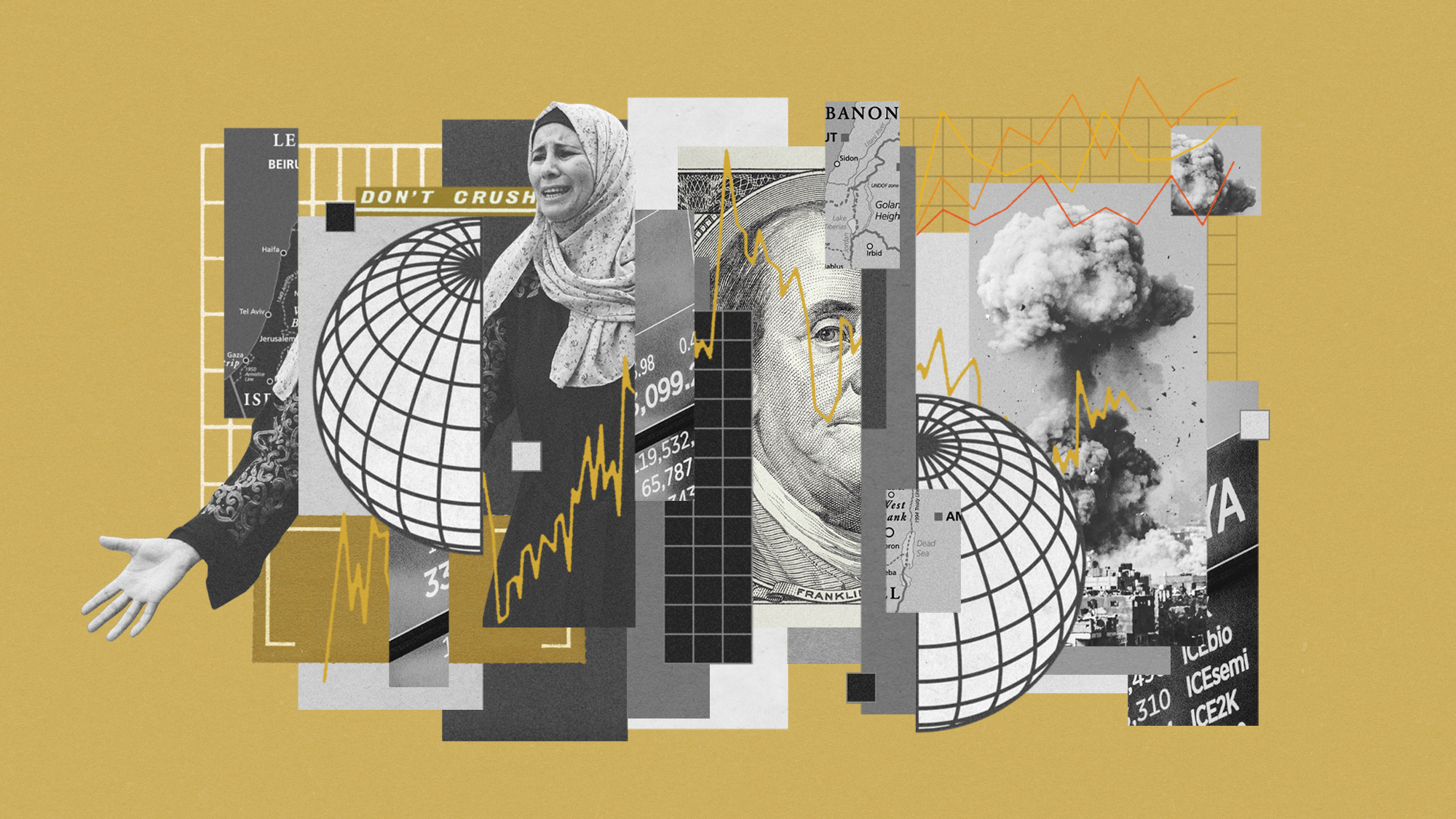 How might the Israel-Hamas war affect the global economy?
How might the Israel-Hamas war affect the global economy?Today's Big Question Regional escalation could send oil prices and inflation sky-high, sparking a worldwide recession
-
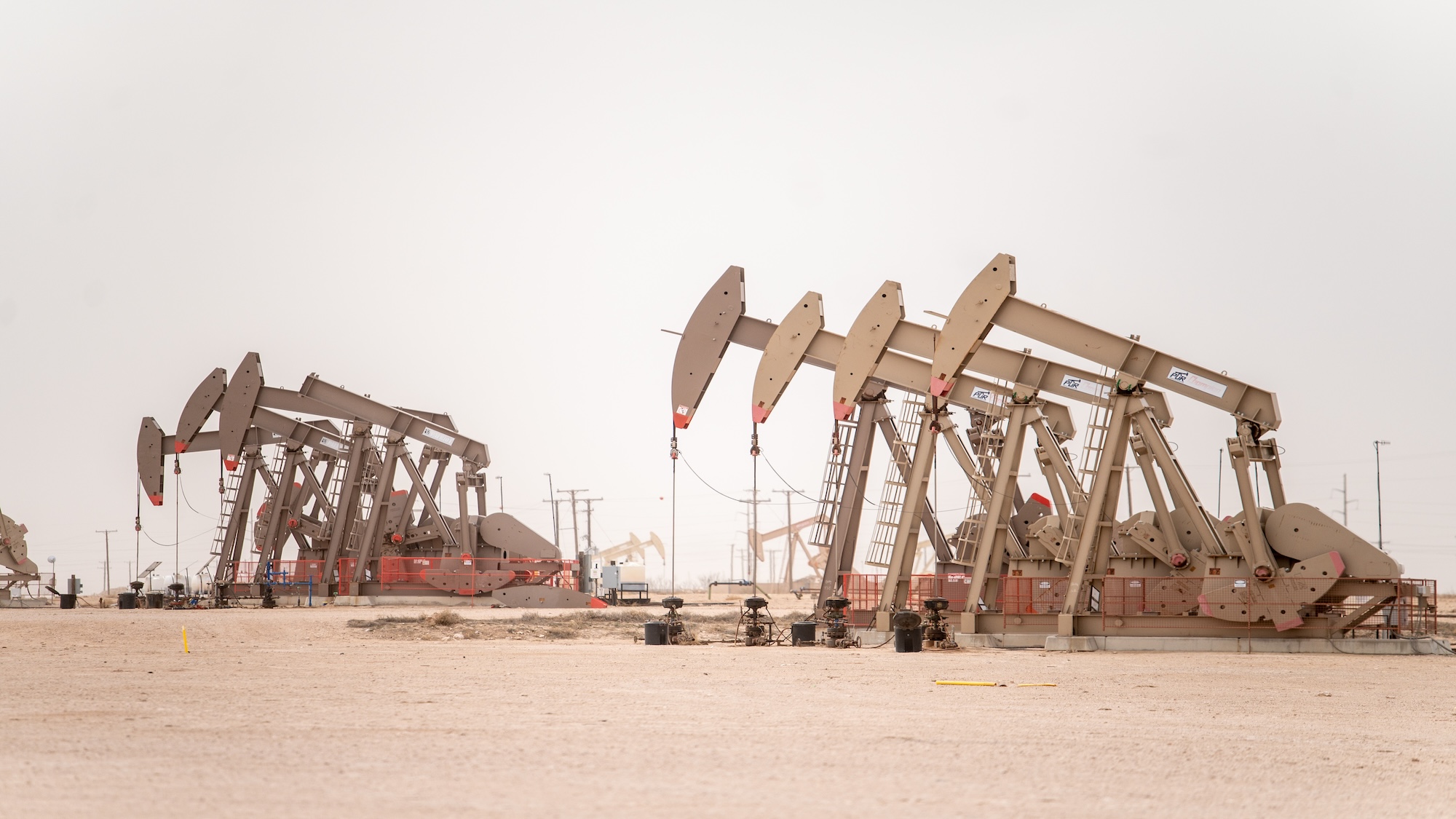 Recent mega-mergers could signal a turning point for the US oil industry
Recent mega-mergers could signal a turning point for the US oil industryTalking Point Both Chevron and Exxon have recently spent billions to acquire smaller oil companies
-
 Has Saudi Arabia lost control of oil prices?
Has Saudi Arabia lost control of oil prices?Today's Big Question Kingdom goes it alone to cut production, risking tension with US and reigniting cooling inflation in Europe
-
 US angered by Opec+ oil cut
US angered by Opec+ oil cutSpeed Read Energy prices to rise further as producers slash supply by two million barrels a day
-
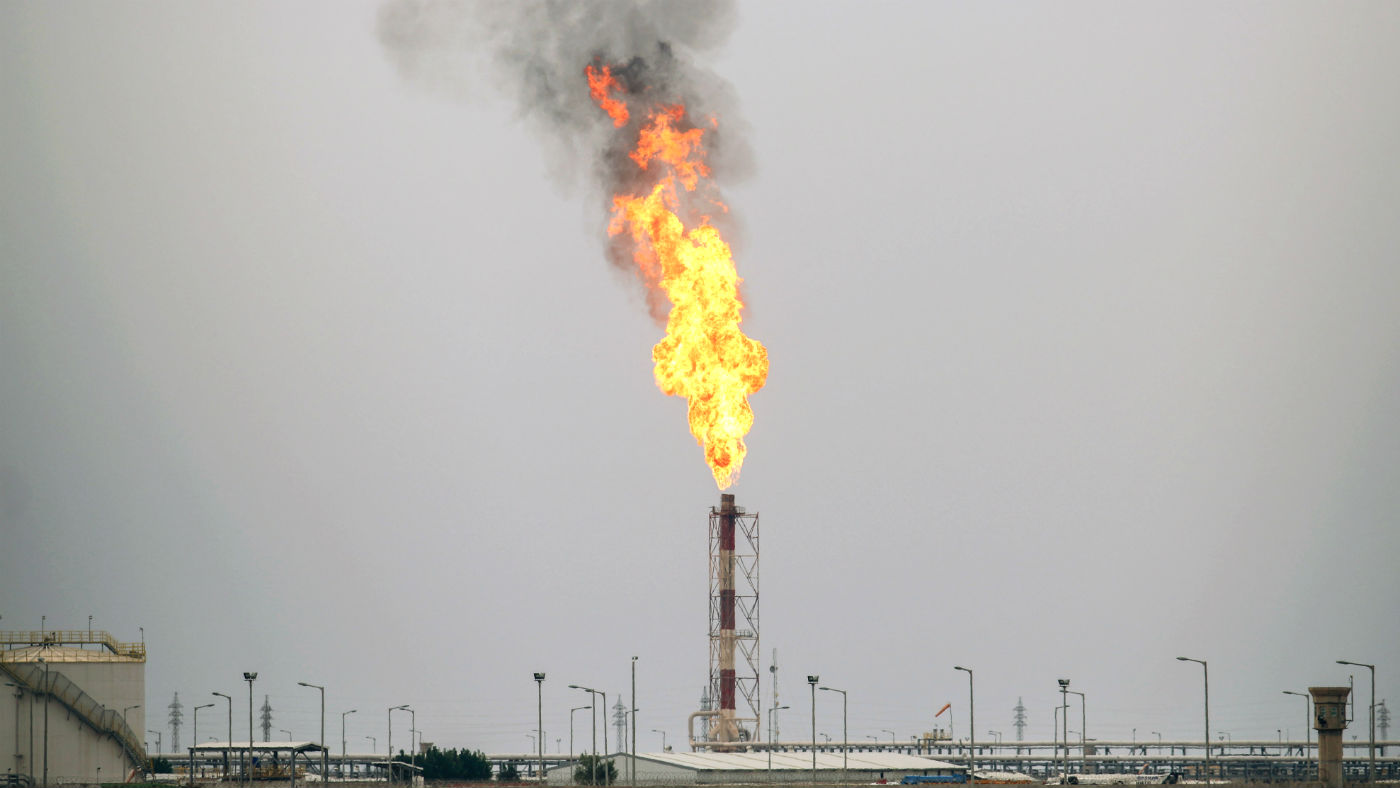 Global oil demand forecast lowered for 2020 and 2021
Global oil demand forecast lowered for 2020 and 2021Speed Read IEA report says jet fuel demand remains the major source of weakness
-
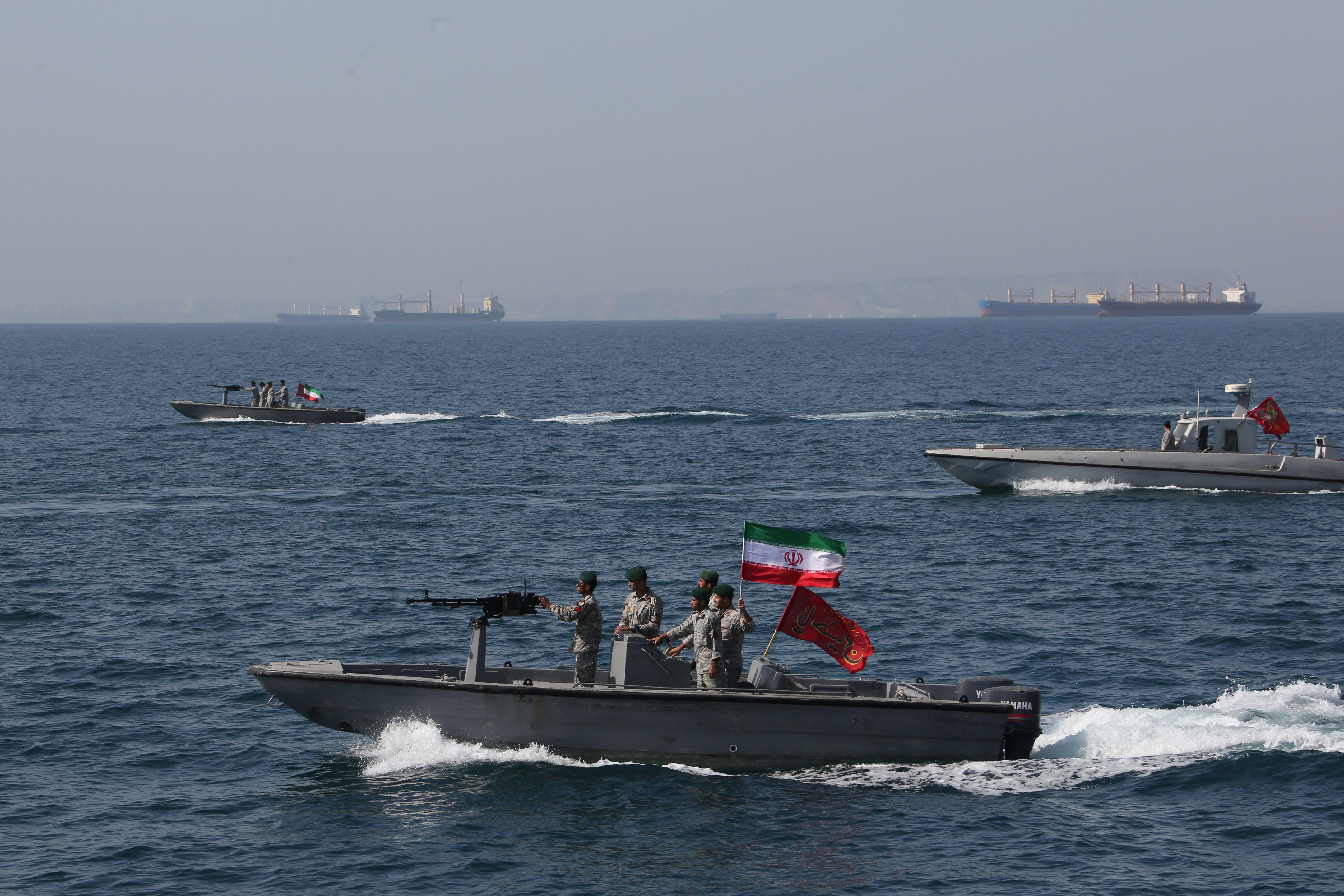 Are US-Iran tensions flaring again?
Are US-Iran tensions flaring again?In Depth Trump threatens military action over Twitter
-
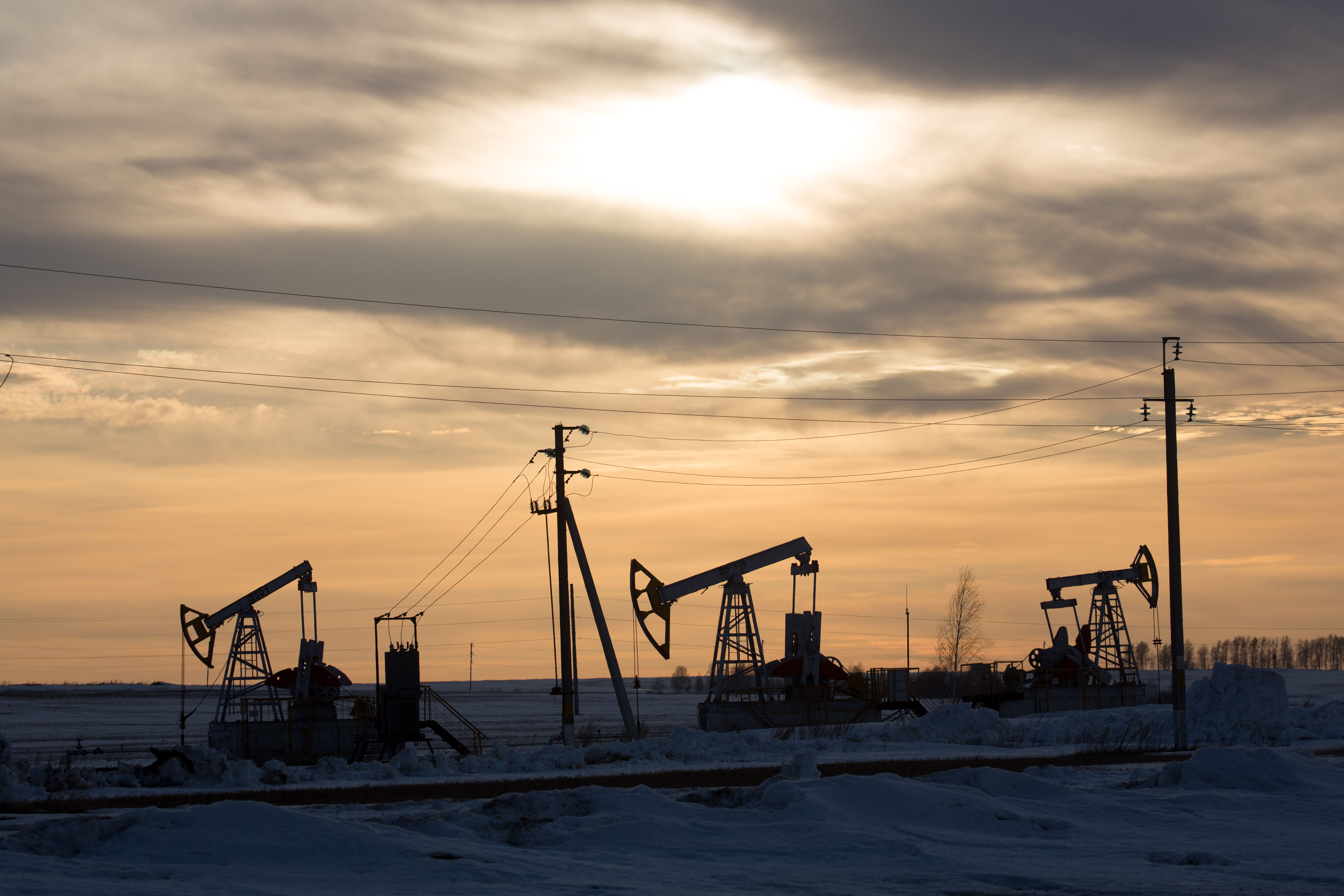 Can a deal be struck to raise oil prices?
Can a deal be struck to raise oil prices?In Depth Opec+ will convene today over video link in a bid to boost crude
-
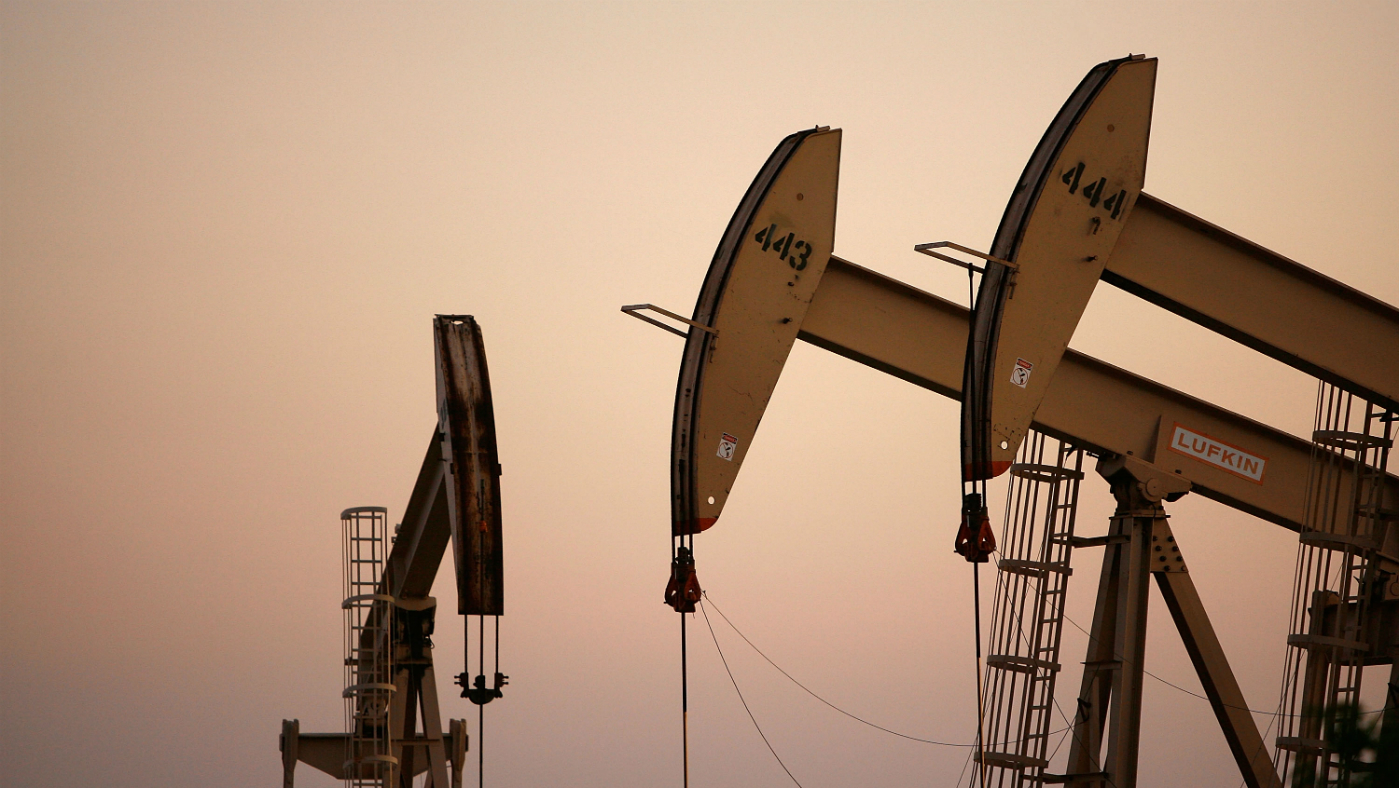 What do negative oil prices mean?
What do negative oil prices mean?In Depth Perfect storm of oversupply and storage shortages sees producers paying to get rid of US crude